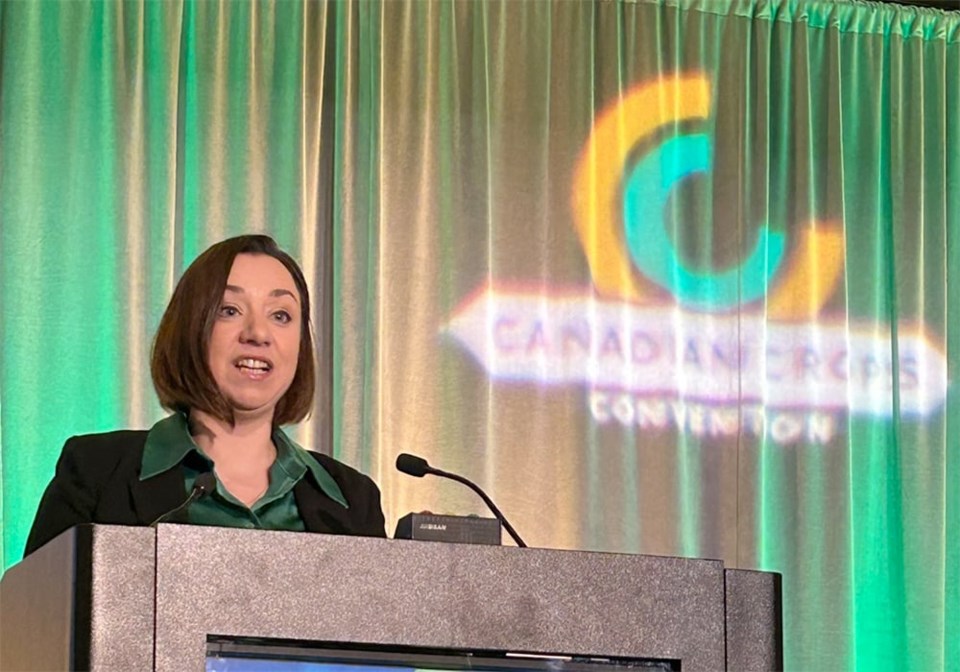WESTERN PRODUCER — It’s time for Canada to step up if it wants to keep the rules-based trading order alive, farmers heard at the Canadian Crops Convention.
Without rules-based trade, agricultural exporters will be playing in a game controlled by others.
“Canada should play a bigger and stronger role,” said Emily Rees, president of CropLife International, which represents global agricultural chemical and seed companies.
More than any other mid-sized country, Canada has influence around the world due to it exporting food products to almost 200 countries.
“That gives Canada enormous heft in global trade,” said Rees.
Recent years have seen a retreat from international trade as major countries such as the United States, China, India and the European Union embraced numerous protectionist positions.
Particularly worrisome to Steve Verheul, Canada’s longtime agricultural trade negotiator, has been the U.S.’s abandonment of its role as the champion of ever-liberalizing trade. Former president Donald Trump’s administration saw a reversal of American support for rules-based trade, and the Biden administration has shown no interest in returning to a more pro-trade stance.
That leaves Canada needing to find allies among fellow second-tier nations. Similar to Rees’ view, Canada has much influence in international trade because of the breadth of trade it has across the planet.
“I think Canada is extremely well-positioned to take a much bigger leadership role in the world,” said Verheul, who is now a consultant and adviser on global trade issues.
Both Verheul and Rees noted the dispiriting lack of progress at the recent World Trade Organization ministerial conference, which was just held and at which virtually no progress on reviving stalled world trade talks was made. Other trade talks around the world, both multi-party and bilateral, are making little headway.
For Canada, talks with the United Kingdom and India are on ice, disputes with the EU have become chronic and talks for increased trade with Latin America are mostly just talk.
There are still many countries that are pro-trade, but without the U.S. to rally them, they do not form a coherent voice. That’s where Canada could find a role.
Rees said Canada has been an effective “convenor” of trade-friendly nations, including creating the “Ottawa Group” of nations still willing to talk about increasing the free flow of trade.
That loose coalition has created a dispute addressing system that could be helpful as long as the WTO dispute mechanisms are broken.
However, Rees encouraged Canada to move beyond 小蓝视频 a convenor and moving into the role of 小蓝视频 a leader of trade-friendly nations. After years of following the U.S. lead, it’s time for Canada to be “less of a tag-along nation” and pick up the leadership role, she said.
Trade is fraying into numerous bilateral disputes in the vacuum created by the disappearance of pro-trade momentum. That leads to tit-for-tat trade retaliation and a focus on bilateral deal-making that pushes multilateral deals further off the agenda, Rees said.
Verheul said even with multilateral discussions stalling in most places, he’s not keen on bilateral deals as a focus.
“I’m not in favour of the notion that we should have smaller agreements for smaller issues,” said Verheul.
There is a place for those on technical matters, but for real improvements, multilateral agreements are necessary.




